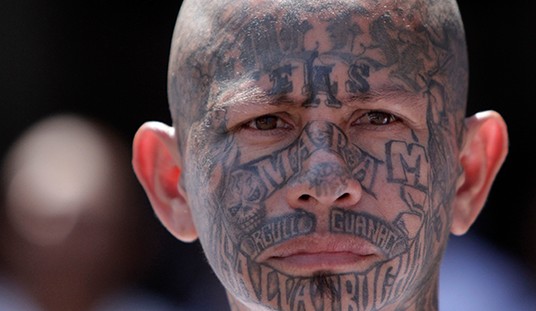Striking, partly because 59 percent of the population overall supports sanctions and partly because the sanctions themselves won’t hurt Russia much. They’re a wrist slap for invading Crimea — and still, millennials can’t muster a majority in favor. Is that, as CNN suspects, simply a product of age? Younger Americans don’t remember the evil empire so maybe they’re more inclined to cut Russia some slack. Or is it a product of ideological orientation? Younger Americans skew left on all sorts of issues so maybe they’re more likely to take a dovish line on sanctions too, evil empire or not.
Before you answer, take a peek at Pew’s recent mega-poll on all things millennial. To support the “ideological orientation” theory:

They’re the most liberal of the four age demographics, especially on social issues. Gay marriage, marijuana legalization, a path to citizenship for illegals — you name it, millennials are softer than any of their elders. The only two (very notable) exceptions are on abortion and gun control, where they’re in line with the rest of the pack. All of which could mean that millennials are mostly libertarian, not liberal, which in turn would help explain why they’re cool to sanctions. Plenty of Democrats in Congress want to slap Russia over Crimea, but on the other (far) end of the spectrum, Ron Paul thinks it would be “criminal” to do so. Maybe we’ve got a generation rising that wants a government of “restraint” both abroad and domestically.
Or maybe not:

Fully 61 percent of millennials oppose cuts to Social Security benefits even though 53 percent say government programs for the young should have priority over programs for the old and 51 percent expect to receive no benefits themselves when they reach retirement. Puh-retty liberal. So these are just loud-and-proud lefties, including with respect to the U.S. confronting Russia, right?
I don’t know. What about this one?

The key data here isn’t the table itself but how those numbers have changed over time. Fifteen years ago, when they comprised the 19-34 age group, only 46 percent of Gen Xers said they were patriotic — a smaller number than the number of millennials who say so now. This may be a simple function of maturation, not of deep political identity. And if that’s the case, maybe opinions on sanctioning behavior like Russia’s will change too. If Obama’s critics are right, a lot of U.S. enemies are going to test our “red lines” over the next three years. The more experience millennials have with emboldened rival powers threatening U.S. interests, the more appeal measures like sanctions may gain. On the other hand, it could be that Pew is wrong and that views of patriotism aren’t fated to change over time; maybe it was the jolt of 9/11 that made Gen Xers rethink their identities as “patriots” such that, absent any similar jolts, millennials may drift on at 50 percent levels or lower. Would someone who doesn’t identify as “patriotic” be less likely to sanction Russian expansionism? Seems logical to me, but without a direct question on that point, there’s no way to know.
By the way, sanctions on Russia are the only punitive measure that drew overall majority support in today’s CNN poll. Sending economic aid to Ukraine topped out at 46 percent and canceling the G-8 summit topped out at 40 percent. Sending troops to Ukraine landed with a thud at just 12 percent.








Join the conversation as a VIP Member